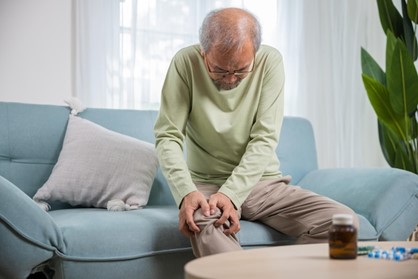In Ayurveda, Gout is termed “Vata Rakta,” gout occurs when there is an imbalance of Vata dosha and Rakta dhatu, leading to the accumulate of uric acid in the blood and the formation of crystals in the joints.
Causes of Gout in Ayurveda:
- Imbalanced Vata Dosha: Aggravated Vata dosha disrupts the normal flow of energy in the body, leading to gout.
- High Uric Acid Levels: Consumption of foods high in purines (red meat, shellfish, and alcohol) can increase uric acid levels in the blood, contributing to the development of gout.
- Poor Digestion: Weak digestion and improper elimination of waste products lead to the accumulation of toxins (ama) in the body.
- Sedentary Lifestyle: Less physical activity and poor circulation can contribute to the development of gout by slowing down metabolism and increase the risk of uric acid buildup in the joints.
Signs and Symptoms of Gout (Vata Rakta) in Ayurveda:
- Swelling and inflammation, particularly in the big toe.
- Sudden and severe pain in the affected joints.
- Redness, warmth around the affected joints.
- Stiffness in the joints.
- Formation of nodules or tophi around the joints.
Ayurvedic Management of Gout (Vata Rakta):
- Ayurvedic Medications: Take specific herbal formulations prescribed by an Ayurvedic practitioner to reduce inflammation, manage pain, and balance the doshas
- Herbal Remedies
- Panchakarma Therapy
- Lifestyle Modifications
- Dietary Modifications
- External Therapies: Apply herbal poultices, undergo warm oil massages (Abhyanga), and steam therapy (Swedana) to alleviate pain and inflammation in the affected joints
Gout, known as Vata Rakta in Ayurveda, a condition which is characterized by the accumulation of uric acid crystals in joints due to an imbalance of Vata dosha and Rakta dhatu. Ayurvedic treatment focus on restoring balance to the doshas, reducing inflammation, and alleviating symptoms through dietary modifications, herbal remedies, Panchakarma therapy, lifestyle modifications, Ayurvedic medications, and external therapies. It is important to consult with an Ayurvedic practitioner for personalized recommendations based on individual constitutions and conditions.




